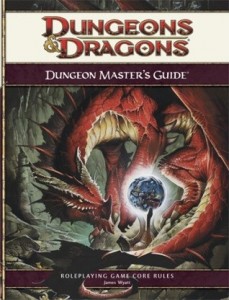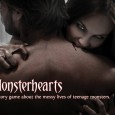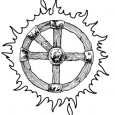 GM: Sean Nittner
GM: Sean Nittner
Players: Three kids 10 and under
System: Dungeons & Dragons 4E
We picked up the Dragon Tree campaign with the funeral of Nadaar. The girls told me me a couple cool things about the world. First, that the king’s advisor “Andraste”, who was an Eladrin Wizard was very old, very wise, and a good person. This meant by default that the king’s son (the prince) was a real jerk.
The also told me that fallen heroes are sent off on a barge on Disappearing Lake, where they, no surprise here, disappear.
A quest
We opened with the king in mourning (all dressed in white) and Naddar’s body being prepared (his armor cleaned, his sword placed on him, and his body preserved for the journey to Disappearing Lake).
While this was taking place Andraste summoned the heroes an asked that they accompany Naddar to the lake. She mentioned that he was trying to set the dragons free and that there were people who did not want that to happen. She talked about the darker times, but it seemed the kids weren’t very interested, so we quickly moved the conflict…
A cranky prince
Prince Varis, however, had other ideas. He stormed into the Kings pavilion and demanded to know what the heroes were doing there. When Andraste said they would escort the body of Nadaar, he flew off the handle and made the heroes prove why they were worthy. This was a skill challenge that each of them passed individually. Once they impressed him he said “you can escort him” but if they failed to impress him twice he told them they couldn’t leave the city. As it turned out Audrey the halfling impressed him but the two Dragonborn Kaplatch and Jengoh but irritated him so he placed a ban on Dragonborn entering or exiting the city.
After some disgruntlement on the part of the heroes they decided that Audrey would lead the caravan out of the city and the two Dragonborn would find other ways out. Kaplatch the rogue snuck over the wall, while Jengoh, the wizard, used ghost sound to distract the guards. These efforts mostly worked, but Kaplatch was spotted and had to slip past the guards. The failure results in the first scene indicated the prince was ill disposed to them, the failure to the second means the prince knows they have left the city. I pretty much think we’ve set the prince up to be the “Bad Guy”, which I’m down with.
Just gather some stick he said
When the first ran by Tanglewood forest (sneaking over the wall) I told them they ran through lots of spiderwebs and were wiping them from themselves when they got out. That was a nice foreshadow for when one of them entered the Tanglewood to gather wood for a fire. In fact it was Kaplatch. The woods got suddenly quiet and Kaplatch heard a rustling in the bushes. He pulled them aside to find a squirrel caught in a giant web. The rogue freed the sqirrel but in doing so disturbed the web and angered the giant spider. Fight!
Surprisingly (to me at least) the other to heroes were really reticent to charge in and save their friend. I didn’t use any battlemap, I just told them it would take a round for them to run in, but they instead shouted “hey, get back here” which didn’t do their friend much good, as he was being eating alive by a mammoth spider.
Eventually they did rally to his help and took down the spider, not without some serious effort and everyone getting hurt. Kaplatch decided that getting poisoned was no fun and Audrey noticed that the spider had a giant spool of webbing that she could transport in it’s carapace and dump on her foes to wrap them in the same sticky goo she was trapped in before. Yay. Treasure!
Sleep tight
That night Jengoh was visited by a ghost who offered to help, but gave up as the Dragonborn refused to talk to him.
Thoughts on the game
It’s a little strange gaming with kids because one one hand they will be super creative, usually when there is nothing at stake, but the moment I present them with a challenge they tend to lock up. It makes me feel a lot like I’m a teacher giving them a quiz and they suddenly go from playful and creative to deer in headlights. I told them several times they could try anything but that didn’t really relieve them, since they knew that it still came down to die roll.
Not surprisingly they liked powers a lot because those were simple answers. So when a monster shows up they just said “I want to use my two fanged strike” and were happy to roll dice. When the prince challenged them though, and I asked what they would say if felt a lot more like “I” (Sean) was an authority figure punishing them.
I think I’m going to present a very low status person with a problem (“hi there, this tree fell and landed on my foot, can you help me out?”) and see what they do with that.
I can also tell their not really into story as such. I mean, they pretty much want to jump right to the “we rescue dragons” and I’m not sure how to frame that into D&D. Perhaps they can find a trapped dragon in Disappearing Lake? Or maybe speak to a trapped dragon through the “crystal ball” of the lake? Not sure.
After the game my youngest asked “how did the ghost know Jengoh’s name?” Good question little one. Let’s find out.


My son was 8 when I first ran for him. I wouldn’t have run for three kids though (obviously not brave enough!) an old school fiend of mine and my wife also played.
I found he was happy to jump in to things, but quick to run away when in danger. The idea of his character getting hurt had a big effect on him. It’s possibly similar with them and the spider.
The biggest difference between him and adults was a lack of planning, both in a bad ‘oh, I haven’t got what I need/ not considering the consequences’ way and a good ‘this might be useful later for a big problem, but it will fix this small problem now’ way. Adults would keep the big plot device for an important encounter, I think kids will just use it and presume there’ll be something else to use later.
Biggest lesson, they can be quite fragile, I used home brew original RQ2 for my game, I’d be wary of letting a bad roll cause anything too drastic to happen.
Yeah, I’m particularly concerned with failure and consequence. I want to make sure that my rewards are very tangible so that when obstacles and complications are thrown in their way, they feel they have already made some real progress first.
That makes sense. In the game I ran two of the players were actually dragons.
For various back story reason I had a world where when dragons got to a certain age they stopped travelling in the world and just stayed on their hoards, primarily because of accumulated knowledge/power rather than wealth. A job had to be done so two immature dragons and a dragonkind/human with dragon kin were tasked with it. As a nod to the two adults they found out at the end of the final session that they’d basically been playing the ancient history of the campaign they’d been in.
Anyway, an 8 year old played an immature dragon very well, at one point he crash landed through a barn. Another, on a whim, he got in to a huge argument with the dragonkind (played by his mother) after deciding to torch a wagon while it was being driven by the dragonkind and a farmer. He then disappeared off in a sulk, when he got tired he slept by a river only to waken to find hunters around him with bows. While the bows could do almost no damage at all through his armour skin when faced with the threat he flew straight back to the other two with his tail between his legs. As the GM it was quite a surprise to me.
It’s been 9 years since we played that, but I still remember it very well. (Obviously enough to bore about it 🙂 ) As mentioned, you get a completely different flavour of game with kids playing, quite a refreshing one most of the time.
I think I had a point, which was ‘small stuff matters a lot to young players’. While a jaded adult might not get worried for less than 50% hitpoint loss, a scratch can be sufficient to make a young player anxious about their characters fate.